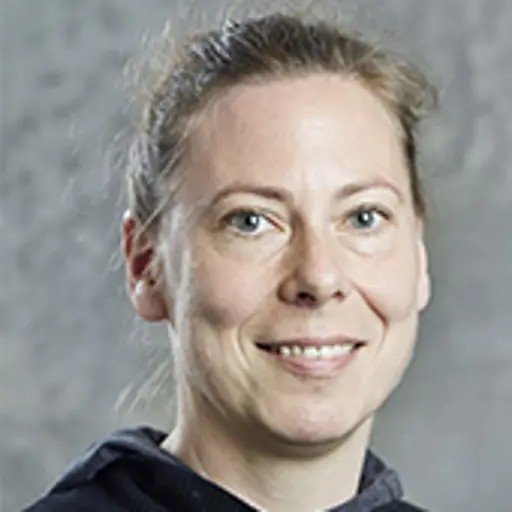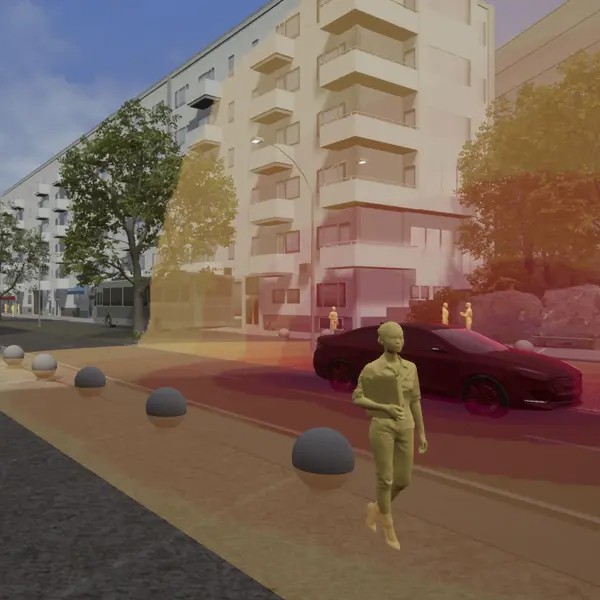The Sustainable Built Environments Research Area focuses on developing methods, tools, and strategies to enhance the sustainability performance of the built environment. Our research encompasses everything from construction materials and building products to entire buildings, neighbourhoods, cities, and regions. We build upon and advance the foundations of sustainability science, while also engaging in applied research with a diverse range of stakeholders, including material manufacturers, designers, planners, and citizens.

About Sustainable Built Environments
Our primary academic goal is to minimize natural resource consumption and environmental impacts within the built environment throughout its entire life cycle, fostering a transition towards a sustainable built environment. By leveraging sustainability science, we equip a diverse range of stakeholders with the knowledge, methods, and tools necessary for this transition. Our interdisciplinary research focuses on both fundamental principles of bio-technological systems in the built environment and applied research, utilizing both quantitative and qualitative methods tailored to specific research questions.
Our Long-Term Research Question
How can we systematically reduce environmental impacts throughout the entire life cycle and support the transition towards a sustainable built environment?
Current Research Focus
To address this overarching question, we are exploring three main areas:
-
Resource Efficiency and Circular Economy: How can material stock and flow modeling and Life Cycle Assessment (LCA) enhance resource efficiency and support the transition to a circular economy?
-
Bio-Based Materials: How can bio-based materials contribute to an environmentally friendly and circular built environment?
-
Digital Methods and Tools: How can digital methods and tools support sustainable design, operation, and renovation of the built environment?
Our Methods
We employ a variety of methods, including Life Cycle Assessment (LCA), Material Flow Analysis (MFA), Material stock and flow modelling, Building performance simulation, and Circularity assessment, amongst many others. Additionally, we explore ways to facilitate the adoption of these methods through digital twins, Building Information Modeling (BIM), parametric design, and visualization techniques such as virtual and augmented reality. Our methods and approaches can be grouped into five core areas:
-
Life cycle sustainability assessment
-
Material stock and flow modelling
-
Urban metabolism
-
Bio-based materials
-
Computational methods and tools

Industry relation
Our research findings are applied by industry professionals, including architects, engineering firms, and urban planners, who integrate our tools and knowledge into their processes.
For more information about our projects and the latest news, visit https://sb.chalmers.se/
Education
We provide courses at the Master level in a range of different programs at ACE, such as BOM251 Life Cycle Engineering, ACE405 Design and Performance Optimisation in Architecture, ACE155 Urban Metabolism and Resources, ACE095 Urban Systems and Infrastructure, and ACE590 Sustainability Analytics and Visualization. We are also involved in TRACKS with TRA335/400 Adaptation to Future Environments. We systematically integrate our research results into our courses to develop them further.
Research Area Leader
Research Area Members

- Assistant Head of Department, Architecture and Civil Engineering

- Studierektor, Architecture and Civil Engineering

- Researcher, Building Technology, Architecture and Civil Engineering

- Associate Professor, Building Technology, Architecture and Civil Engineering

- Assistant Professor, Building Technology, Architecture and Civil Engineering

- Artistic Teacher, Building Technology, Architecture and Civil Engineering

- Senior Researcher, Building Technology, Architecture and Civil Engineering

- Postdoc, Building Technology, Architecture and Civil Engineering

- Postdoc, Building Technology, Architecture and Civil Engineering
- Doctoral Student, Building Technology, Architecture and Civil Engineering

- Doctoral Student, Building Technology, Architecture and Civil Engineering

- Doctoral Student, Building Technology, Architecture and Civil Engineering
- Doctoral Student, Building Technology, Architecture and Civil Engineering

- Doctoral Student, Building Technology, Architecture and Civil Engineering

- Doctoral Student, Building Technology, Architecture and Civil Engineering
- Doctoral Student, Building Technology, Architecture and Civil Engineering

- Postdoc, Building Technology, Architecture and Civil Engineering

- Doctoral Student, Building Technology, Architecture and Civil Engineering

- Doctoral Student, Building Technology, Architecture and Civil Engineering

- Doctoral Student, Building Technology, Architecture and Civil Engineering
- Doctoral Student, Building Technology, Architecture and Civil Engineering
- Project Assistant, Building Technology, Architecture and Civil Engineering
Affiliated members

- Professor, Architectural Theory and Method, Architecture and Civil Engineering

- Doctoral Student, Structural Engineering, Architecture and Civil Engineering
- Doctoral Student, Energy Technology, Space, Earth and Environment

